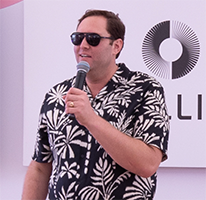Nearly two-thirds of Americans surveyed believe Internet sales should be taxed the same as conventional sales, according to a poll conducted by the e-Fairness Coalition.
The group, representing more than 350,000 local and national retailers, released results of the survey Tuesday in San Francisco as the Congressionally appointed Advisory Commission on Electronic Commerce (ACEC) began a two-day debate, which ends today, on a draft report that saw no “compelling reason to impose taxes exclusively targeted at electronic commerce.”
Besides recommending that the Internet “not be subject to excessive taxes or government regulation,” the draft report states that “policy makers at all levels of government should be particularly mindful to respect consumer privacy rights [and] not undermine the nation’s global competitiveness in Internet commerce generally or [in] any particular business sector.”
Also the report says that there should be no financial or logistical burdens imposed on Internet sellers.
The 19-member ACEC, chaired by Virginia Governor James S. Gilmore III, is scheduled to file its recommendations on whether Internet sales should or should not be taxed with Congress in April.
Meanwhile, according to the retailers coalition, 63% of the 600 people polled said Internet sales should be taxed the same as conventional sales and if it is, 71% said they would not change their buying habits.
The coalition did not indicate the percentage of those polled who actually shop online.
David Bullington, a founding member of the coalition and vice president of taxes for Wal-Mart, said in a statement, “We don’t support creating new taxes on the Internet, but like most Americans, we believe all sales tax should be equally applied on all commercial transactions, whether they take place online or in a store.”
StrategyOne, a unit of Edelman Public Relations Worldwide, conducted the early-fall survey by telephone asking consumers across the country about their opinions on whether Internet sales should be taxed and if their buying habits would change if it were.
 Network
Network

